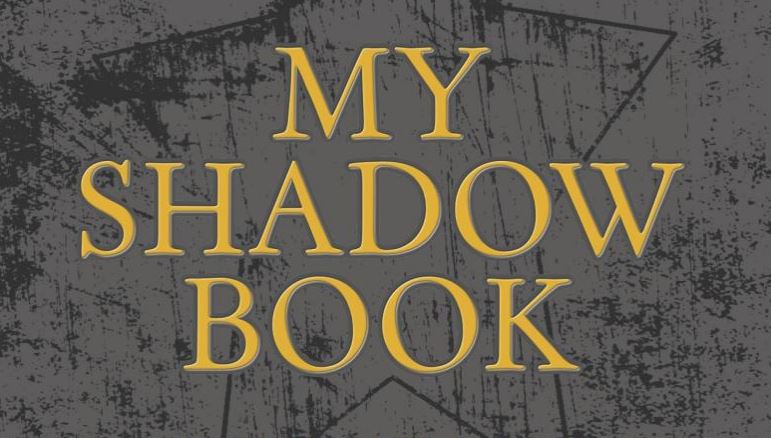“Reading a book is no different from reading a painting or a symphony or a person or a situation or a city.”
My Shadow Book purports to be a collection of excerpts from notebooks by a mysterious figure named Maawaam. By presenting the poems, prose fragments, unfinished novels, philosophical ponderings, and sketches, Jordan Rothacker attempts to show the secrets that Maawaam kept in his writings.
Through most of the book, Maawaam talks about a secret order he is part of known as the Shadow Men. The Shadow Men seems to be a cabal of writers, philosophers, and artists who have “stepped out of the light.” What this entails is left vague, but it seems to heavily involve delving into “unpleasant” truths. In that case, it’s no wonder this order includes figures like Nietzsche, Bataille, Fanon, and Acker.
“The Shadow Men are the handmaidens of the forgotten. We facilitate Ubertragung. We ferry the return of the repressed. There are many that slumber in that half-light.”
Maawaam’s preferred method of digging into unpleasant truths is through literature. My Shadow Book is littered with poems, short stories, and excerpts of unfinished novels by Maawaam. Between these fragments, especially those of the novels, Maawaam makes no secrets of his frustrations in writing. This is definitely a “writer’s book” as many writers will relate to and understand Maawaam’s frustrations. Take this excerpt where Maawaam addresses a strange novel he attempted to write called BOMB.
“I don’t know if I’m going to finish BOMB. I don’t know if I can. And so what if I did? It couldn’t sell, that much I know. Who would read such a thing? I would have to be much more established first before inflicting that on an audience. I would need something else first, something easier, something fun.”
Despite his frustrations, Maawaam still produces some amazing prose. One wonders if Rothacker is referring to his own earlier plot-driven novel And Wind Will Wash Away in comparison to this very fragmented piece of meta-ficiton. But of course, this is Maawaan’s work, not Rothacker’s.
A large part of the second half of My Shadow Book is taken up by notes about, and chapters from, one of Maawaam’s unfinished novels called The Secret Name. This novel is about a young man named Landry Bread who receives a note that he’s to seek his secret name. We follow Bread on his trip and the people he meets along the way. At one point he discovers a novel called Amerika the Beautifuk, a William S. Burroughs-esque book (Burroughs having also been previously mentioned as a Shadow Man) written by a man named Maawaam. We also read an excerpt from that novel. A book within a book within a book within a book.
Here the fragmented nature of the book is somewhat frustrating. Many of the unfinished books described are just as, if not more, fascinating than My Shadow Book, and I was a bit disappointed to have Landry Bread’s narrative end abruptly. While this case of literary blue balls was obviously intentional, it makes it no more enjoyable.
Another of the more disappointing parts of the book is the ending. It’s very heavily implied (though not explicitly stated) that Maawaam is not any kind of person or spirit, but the concept of writing and/or literature itself. While my interpretation of the ending may be wrong, I do find it rather corny that the final fragment flashes back to Maawaam creating what are likely the oldest known cave paintings.
Some of the coverage you find on Cultured Vultures contains affiliate links, which provide us with small commissions based on purchases made from visiting our site.

